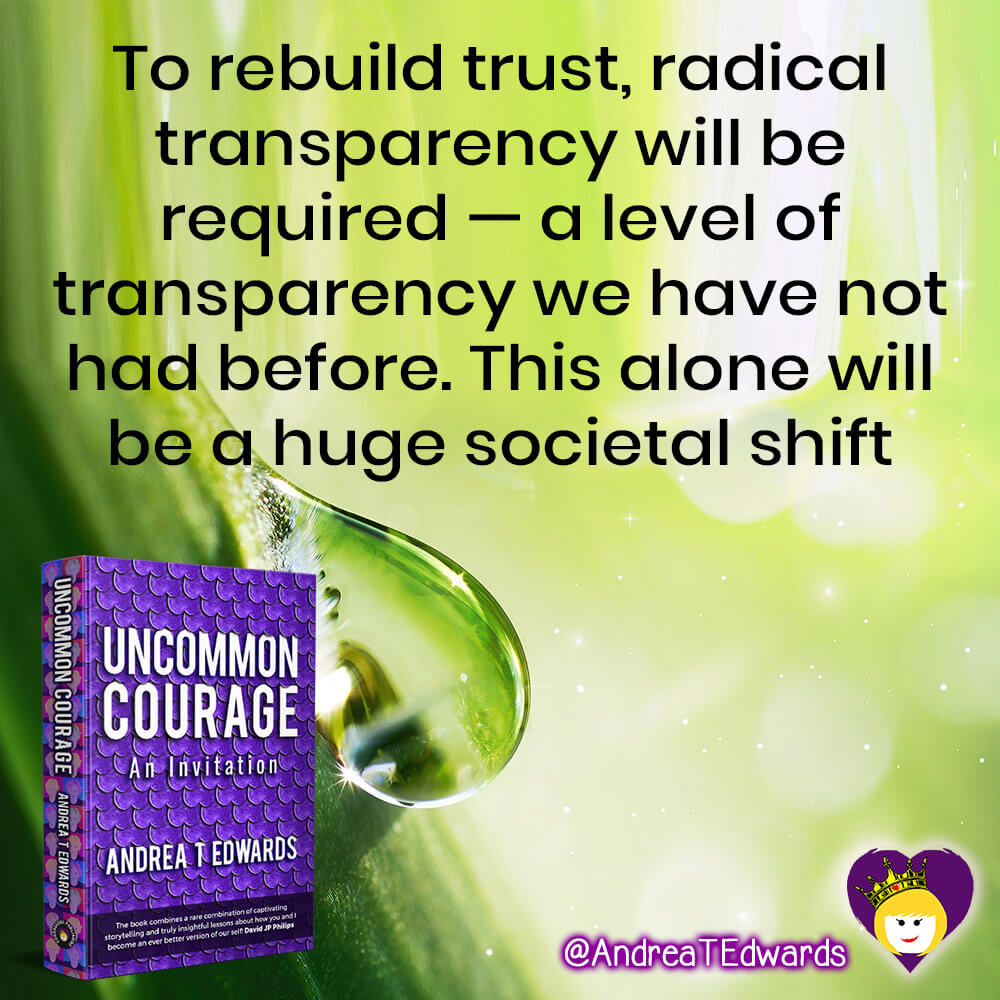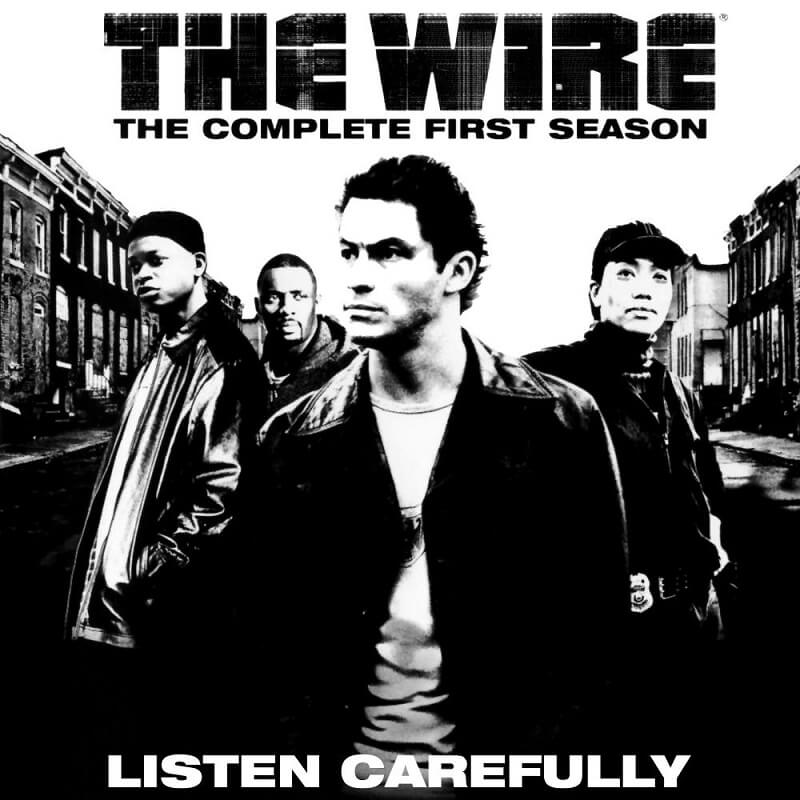In a recent Climate Courage, we focused on where we live and the risks we face. Never a pleasant conversation, but if we pay attention to what’s happening and can get ahead of it, we will make decisions now that protect ourselves and our families through the challenging years ahead.
The show featured the experiences of my friend Kate Marsden, who shared her journey of living through multiple floods in Queensland, Australia, including one which wiped them out and they have still not recovered from it.
Have a listen to the show
I believe the most important thing we can do right now is focus on our children’s futures versus our own. While we all think about our children’s futures as a matter of course, it’s a massive shift to think in terms of them only. You see very different priorities.
If we can’t think in terms of their future, we won’t make the right decisions, and we won’t vote in leaders capable of driving the systemic change required to ensure their future either.
Are you thinking this way? Are you planning for your children’s future as your number one priority today?
I hope you are, because climate change is happening faster than anyone in-the-know expected, although if you’ve been reading between the lines the last few decades, it’s always been very clear it’s going to hit us sooner and harder than expected. Softening the IPCC reports to keep governments happy was never a good idea.
This year the reality of what we face has become very clear. Our weather is more severe, extreme weather events are happening more frequently, larger and larger areas are being impacted, and everything is moving faster than we’re being told or that we believe.
So, what can we do and when should we do it? We don’t want to be too late, right? We don’t want to look silly being too early either. Although I’d be happy to look silly.
No question, it’s a complicated issue and I’ve spent years trying to understand it.
That’s what this show was about, and below are some notes from the research I’ve done, and down the bottom are links to articles, as well as maps, looking into the future.
Some recent articles
Almost Half of Earth’s Vital Signs Are Now ‘Code Red’, Scientists Warn : ScienceAlert
Permafrost collapse is accelerating carbon release
Climate negotiations: 30 years of melting hope and US power
Climate change: Zombie fires and soaring temperatures: What happens when it gets to 100ºF in Siberia
Feds to consider sending less Colorado River water to Arizona, California and Nevada
Iconic glaciers of Kilimanjaro, Yellowstone to disappear by 2050 due to global warming: UN
A List Of 33 Things We Know About The Coming Food Shortages
Opinion | Climate Change Is Real. Markets, Not Governments, Offer the Cure.
‘Worst Possible News’: Scientists Urge Immediate Action as Greenhouse Gas Levels Hit All-Time High
We are at risk of likely passing 6 tipping points
- Greenland Ice Sheet collapse
- West Antarctic Ice Sheet collapse
- Collapse of ocean circulation in the polar region of the North Atlantic
- Coral reef die off in the low latitudes
- Sudden thawing of permafrost in the Northern regions
- Abrupt sea ice loss in the Barents Sea.
Six tipping points ‘likely’ to be crossed
What to pay attention to with weather
- Worsening storms – Japan and Puerto Rico were only a category one, and look at Australia this year
- Heatwaves – once we hit 1.5, which will happen this decade, we will start experiencing wet bulb temperatures. Iran hit that in August. Even healthy people can’t survive this heat. If your country has started to pass 50C, that’s a sign of an unliveable future coming closer
- Flooding – its criminal that houses continue to be built in flood plains, which happens in developed and underdeveloped countries. Another big issue is stranded assets – i.e. you can no longer insure or sell your property. If you’ve been hit by floods already, that time is coming closer, if it hasn’t already arrived. Of course. the poorest will be hit hardest
- Rain bombs – Durban, South Africa, this year. HUGE dumps of rain that were unimaginable to those who experienced it. Rain bombs are now part of our language
- Droughts – which are impacting food supplies globally, with the poorest again most impacted, however the expected famine is global
- Wildfires – apart from a danger to communities, fires also increase global emissions, drive feedback loops to happen faster, and even if not directly impacted, living with the smoke/haze is awful
- Sea level rise – Greenland Ice Sheet Collapse and the Doomsday Glacier – expected to drown islands and set off a tsunami – how can something the size of Florida land in the ocean and not cause that? Who will be impacted? This is not being spoken about openly. How fast the sea rises is up for discussion, but it’s coming, especially as we are watching Greenland experience rapid melt. We should expect it to happen long before the predictions suggest. Are you on the coast? Not high enough above sea level? Is it time to move?
- Glacial melt – we saw the devastating impact in Pakistan and there are 33 other glacial lakes at risk. BUT it’s also about drinking water and agricultural access. The Himalayas passed its tipping point years ago, and when it goes, how many will be impacted? The Swiss Alps are also melting fast, which will impact millions in Europe
But what else?
- Ocean and ecosystem die offs – hotter temperatures will create more loss of the life that sustains us. If you live “behind” a coral reef, how the oceans act will change when the reefs die. For those dependent for food and livelihood, this will be devastating
- Food scarcity, especially if agriculture doesn’t move into areas where the climate supports growth. The breadbasket of the future will be in Canada, Russia, Greenland and more
- If you go up North, we have the methane dragon rising, so what will that mean? New viruses and bacteria released; nuclear waste trapped in the ice released, uncontrollable emissions that push us further towards tipping points?
- Diseases like Malaria and Dengue are on the move, what other diseases will come? What new pandemics will we see?
- Insect apocalypse. Pollinators dying. What next? What’s the impact?
- If AMOC stops and the Northern Hemisphere freezes, will that change everything? It’s predicted the Northern Hemisphere will sink into an ice age if AMOC stops, will that mean there is enough sun reflected to change the trajectory we’re on? One of the points of clarity I’m trying to answer
Logical considerations for the rest of us
- Insurance premiums going up, or your property can no longer be insured = stranded asset. For those already going through this, they know. Read – Their Home Survived The Camp Fire — But Their Insurance Did Not
- Are you buying or renovating? Is it worth it? Will you be able to sell it?
- Recently, The Commonwealth Bank of Australia announced mortgages worth $31b are exposed to extreme weather event risks
- The cost of land in safer countries is already being bought – not just for billionaire bunkers, but by hedge funds and investors. It’s going to get harder to buy property in locations currently considered safe in the future
- Move to cities that are taking it seriously. One sign is if they are keeping the infrastructure in optimum working order. Think of the floods in New York last year, or the fact the UK hasn’t upgraded its water infrastructure in 30 years
- We all must start thinking for our children and grandchildren, not for ourselves. We are irrelevant. We need to do this for our kids
According to earth.org, three things to consider when moving
- Geographical advantage
- Countries putting in most effort to mitigate efforts
- Or countries most likely to adapt
Other ideas to consider
- Cooler areas of the world, as temps expected to be 5-6 degrees F hotter. 10-15C is optimal temp for humanity to flourish
- Away from the oceans – moving to higher ground due to erosion and shrunken coastlines, as well as flooding becoming commonplace, tropical storms and hurricanes more intense, entire towns are expected to be destroyed
- Fresh water access
- Elevation
- Away from the equator
- Small Islands will be submerged
- Don’t go to arid or desert regions
- Rainforests and woodlands = fire danger
Migration
For many places, it’s too late and there is no time to adapt. We’ve seen migration double in the last decade and it’s growing. In an article in Time Magazine, it states: we will build vast new cities in the North and abandon the unendurable tropics. We will adapt food, energy and infrastructure for a changed environment
Our new plans must be based on geology, geography and ecology. If we have 11 billion people, we will need 20m2/person, which is 220,000 km2. We have plenty of space.
So where then?
Earth.org – New Zealand, Iceland, UK, Australia and Ireland
- Smaller populations, except UK
- Large agricultural land
- Direct access to sea
- Isolated means it will be less affected by economic + social instability
- Energy independent
Other lists across multiple sources
- Denmark, Sweden, Norway, UK
- In the US – Boston, The Great Salt Lakes, Denver CO – upstate NY and Pacific Northwest, like Portland and Seattle
- Japan – worse weather but adaptation will be a strength
- Northern Thailand – only South East Asian nation mentioned as a possibility
- Canada, Greenland, Siberia, Russia
- North-Central European countries, like Latvia and Estonia
- Iceland, Nordic nations, Scotland
- Down south – Patagonia, Australia (mainly Tasmania) and NZ
- North of Perth, large new green space, due to precipitation changes
- In Antarctica, 17,000 KM2 new ice-free land expected
There’s a term – North of the 45-degree N parallel – which is Michigan in the US, France, Croatia, Mongolia, and Xianjiang in China
- This is seen as the 21st Century boom-town area
- Alaska by 2047 is expected to have the same temperature as Florida has today
- There will be a hub of connected Arctic cities
Most vulnerable countries/regions?
- Africa, Middle East and South America
- The tropics, especially if close to the equator
- Developing nations, like Haiti
Conclusion
We are witnessing massive escalation around the climate at 1.2 global warming, and we continue to release more and more emissions. The risk of crossing tipping points, which will worsen consequences rapidly, is already happening at scale now. We are not dealing with a linear step-by-step process here. We are looking at exponential change and we must get ready.
Take care of yourself, your family and your community. Pay attention to the challenges where you’re living and make the best decisions you can. I know it’s not pleasant, but we have to pay attention, at least to where we’re living. Everywhere is different, impacts will be different, and there are massive unknowns.
As an example, if the Amazon dries out and becomes a savannah, it will change global precipitation patterns – how and where rain falls, tropical storms, and more will alter dramatically. We don’t even know what that will look like and seriously, I doubt we want to know. It will change everything.
If you’re lucky, let’s remember to take care of those who do not have the same privilege as we do, but are also not responsible for where we are right now. We must get our heads around how we do this and push for it to happen – new refugees cities and more.
As the Times article I referenced earlier concluded with: we must try. We must try to take care of humanity and that is on all of us.
Don’t let politicians tell you otherwise either. Anyone not working towards collective success in the face of the biggest crisis humanity has ever faced, should not be in power anymore.
We face a dystopian future, or a future of unity – and the path of unity is my preference. No doubt it won’t be perfect, but right now, we’re on the wrong path, and that frightens me more than anything. The ONLY way to succeed is to come together and do it together, which includes facing the bad times together. Governments can’t protect us from that and any government who promises it is deluded. They can’t, because they missed the deadline about 20-30 years ago!
My friends, we must come together, raise our voices and do everything we can to ensure our children do not experience massive suffering. As one scientist said: a child born today will have a life expectancy of 30-40 years and the majority of that life will be miserable. We can’t do that, can we?
If you really want to get on top of what is going on, please spend the time reading and watching the content below. My third year of climate change content is here too.
Reference articles
Maps and threats
Sea Level Rise Map and Coastal Flood Tool- US and Global – look around the world
Where We’ll End Up Living as the Planet Burns
The areas of Wales that would be under water and lost by 2050 based on current climate trends – Wales Online
Climate change forces indigenous islanders in Panama to relocate – BBC News
The century of climate migration: why we need to plan for the great upheaval
The Big Thaw: How Russia Could Dominate a Warming World
Here Are the Wildfire Risks to Homes Across the Lower 48 States
As Climate Fears Mount, Some in U.S. Are Deciding to Relocate
What ‘Triple Dip’ La Nina Means for Weather in Your Area (bloomberg.com) important one
Is Your Home At Risk From Wildfire? Check These Maps.
The Best Places to Live in a Future Troubled by Climate Change
We broke down what climate change will do, region by region
Pakistan Flooding Shows ‘Adapting’ to Climate Change Can Be a Dangerous Illusion
The west is ignoring Pakistan’s super-floods. Heed this warning: tomorrow it will be you
What will climate feel like in 60 years?
Risks to life
Irreversible declines in freshwater storage projected in parts of Asia by 2060
Climate change will ‘irreversibly damage’ water supply for two billion people by 2060
If You’re Under 40 You’re Gonna See Some Horrible Stuff, Scientists Say
Welcome to a new age of food insecurity
‘We beg God for water’: Chilean lake turns to desert, sounding climate change alarm
How The Gambia’s oyster farmers are being hit by climate change
Why the conversation about climate change and migration needs to change
Grave Early Warning Observational Signs for Pending Near-Term AMOC Ocean Circulation System Collapse
The increasing frequency of fatal wet-bulb temperatures
Storm Surge in Alaska Pulls Homes From Their Foundations – The New York Times (nytimes.com)
Japan storm: Millions told to evacuate as Typhoon Nanmadol makes landfall – BBC News
California becomes first US state to begin ranking extreme heat wave events
Fast-warming, ailing Med Sea may be a sign of things to come
‘Mind-blowing’ marine heat waves put Mediterranean ecosystems at grave risk
France bracing for ‘catastrophic’ food shortages following drought, farmers and unions warn
World heading into ‘uncharted territory of destruction’, says climate report
Megadrought in the American south-west: a climate disaster unseen in 1,200 years
We’re Not Going to Make it to 2050
Climate change: ‘Fifty-fifty chance’ of breaching 1.5C warming limit
Climate Change Is on Track to Wipe Out Most Ocean Life
Acceleration of the climate crisis
Staggering’ rate of global tree losses from fires
Climate crisis: Scientists spot warning signs of Gulf Stream collapse
‘Soon the world will be unrecognisable’: is it still possible to prevent total climate meltdown?
Wildfires destroy almost all forest carbon offsets in 100-year reserve, study says
Images of Change – Climate Change: Vital Signs of the Planet
Israeli study: Climate change already causing storm levels only expected in 2080
‘All I can think about is the sun’: How workers are coping with California’s heat wave
China’s supply chain is melting in extreme heat. Whose will be next?
Global heating has caused ‘shocking’ changes in forests across the Americas, studies find
More Than 75% of the World Could Face Drought by 2050, UN Report Warns
Glaciers, the Arctic and Antarctica
Antarctica’s “Doomsday” Glacier: Its Collapse Could Trigger Global Floods and Swallow Islands
Antarctica’s melting ice spells trouble on sea rise
Antarctic Glaciers Are Melting Away at the Fastest Rate in 5,500 Years
Slap yourself and pay attention: The Doomsday Glacier is a global risk
Collapse of Antarctica’s ‘Doomsday Glacier’ Could Trigger Deadly Tsunamis and Swallow Islands
What Antarctica’s Disintegration Asks of Us
Climate change: Rising sea levels threaten 200,000 England properties
Going Under: 200,000 homes and businesses at risk of rising sea levels
Nepal to move Everest base camp from melting glacier
Switzerland’s Glaciers Are Becoming a Front-Row Seat to Climate Destruction
Switzerland’s vanishing glaciers threaten Europe’s water supply
Greenland ice sheet climate disequilibrium and committed sea-level rise
Arctic warming 4 times faster than rest of planet: Climate study
Zombie ice from Greenland will raise sea level 10 inches
Why You Should Be Worried About This Glacier – worth a watch if you have time
Stranded assets
CBA mortgages worth $31b exposed to extreme weather event risks
Their Home Survived The Camp Fire — But Their Insurance Did Not
Articles worth a read
Fascism Is Spreading — And It’s a Sign of Civilizational Collapse
Pace of Climate Change Sends Economist Back to Drawing Board
Cheers
Andrea
Environment education
Three environment resources to help navigate this challenging territory. 1. Knowledge, constantly updating. 2. Individual action and awareness, so we do our part. 3. Resources for those struggling with eco-anxiety. Please share with your community.

Uncommon Courage: an invitation – my latest book
Uncommon Courage is an invitation to be your courageous best self every day. It’s also an antidote to the overwhelm, fear, and rage rolling around the world. But it’s more than a book; it’s an invitation to join an inclusive community that wants to better understand humanities challenges – both global and personal – in order to take courageous action and create a better world for everyone. If Covid19 has given us the time and space to reflect, Uncommon Courage gives us the nudge we need to create lasting change.
You can buy it on Amazon, Apple Books, Barnes & Noble, Book Depository, Booktopia, Smashwords, Kobo, Gardners, Odilo, Indie Bound, BookShop by BookTrib and Scribd.
Better yet, order it from your local bookstore, so you can #SupportLocal.
You can read the reviews, including a new five-star review on Book Commentary, another five-star review on ReaderViews, a review on BookTrib, and three more on Booklife, another on Book Commentary and Blue Ink Reviews. I’m also collating reviews on my Website too. Have a look and grateful to everyone who has written or recorded one.
Come and join the conversation in my new Facebook Group Uncommon Courage.
Uncommon Courage, the podcast – Apple, Spotify and everywhere podcasts are published.
The Know Show
Check out The Know Show. It’s a weekly wrap up of the news!
Climate Courage
A fortnightly conversation on issues that matter to you and I, focusing on the actions we can all take.
18 Steps to an All-Star LinkedIn Profile
Listed by Book Authority in the 100 Best LinkedIn Books of All Time and 22 Best New LinkedIn eBooks To Read In 2021 and 2022 categories. Grab it today if you want to take your professional presence to the next level! When it comes to LinkedIn, it really is time to ask — can you really afford not to have this book in the hands of every employee?
Connect with me
andreatedwards.com , uncommon-courage.com
LinkedIn, Twitter, Facebook, YouTube, Instagram, Tik Tok, Medium, Amazon.
Feedback
Have I done a great job for you? Can you write a reference on my LinkedIn profile or on my Google Business page? If not for me, why not write one for someone else who inspires you or has helped you? Join the #GivingEconomy.
Are you a Social CEO? The Social CEO: How Social Media Can Make You A Stronger Leader.
Want to claim your stage? Unleash Your Voice – Powerful Public Speaking for Every Woman





